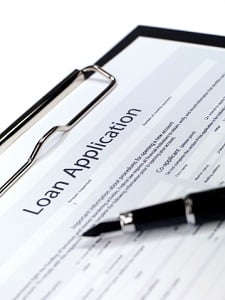 In some situations, debt consolidation may be an advisable solution. On the other hand, there are situations when debt consolidation is inadvisable and bankruptcy is the better alternative.
In some situations, debt consolidation may be an advisable solution. On the other hand, there are situations when debt consolidation is inadvisable and bankruptcy is the better alternative.
How Does Debt Consolidation Work
Debt consolidation entails taking out one loan to pay off many others. This is often done to secure a lower interest rate, secure a fixed interest rate or simply for the convenience of servicing one loan. Usually it is inadvisable to borrow money to pay off your debt; you are moving backward in order to move forward. If you are going to pursue a debt consolidation program you must make sure you will be able to make up for the backwards movement in a reasonable amount of time.
When Debt Consolidation Makes Sense
If you are consolidating your debt for simplification purposes, debt consolidation makes sense. For example, many college graduates choose to consolidate their many student loans into one so they are only responsible for making one monthly payment.
If you are able to secure a lower and/or fixed interest rate, without extending your repayment timeline too drastically, debt consolidation may make sense. For example, if you can take out an unsecured loan with 8% interest to pay off your credit cards currently charging you 25% interest, consolidating your debts may be a good option. You must make sure you will be able to handle the monthly loan payments, because falling behind will harm you in the long run. However, finding an improved interest rate combined with a minor or nonexistent repayment timeline change is very challenging.
When Debt Consolidation Doesn’t Make Sense
If you are trying to pay off unsecured debt, do not secure it by taking out a home equity loan. This secures your unsecured debt, meaning you are at risk of losing property if you are unable to make payments. Also, if you are considering bankruptcy, do not enter into a debt consolidation program first, just to see if it works. Consolidation can affect your ability to discharge debts in bankruptcy.
Generally, if you are swimming in overwhelming debt, bankruptcy is a better alternative because it will function with your capabilities in mind. Personal bankruptcies take into account your current financial situation as well as your livelihood and allow you to keep the money and belongings you need to lead your life.
Choosing a Debt Solution
It generally isn’t black and white when it comes to choosing between debt consolidation and bankruptcy. The types of debt you have and the amounts of each will affect which option is best for you. In order to determine which debt solution is right for you, consult with a legal professional and have your specific financial situation assessed.
Commonly, debtors opt for debt consolidation over bankruptcy because on the surface it seems the most appealing option. Many debtors choose this option because it allows them to manage and pay off the debts they have incurred. They feel personally responsible for getting their debts under control because, after all, they are the ones who incurred the debts. When a bankruptcy is completed, debtors typically end up having most of their debts discharged or they only pay back a portion of their debts. This often hurts a debtor’s pride because they feel they are cheating the system or falling short of their personal integrity standards.
However, bankruptcy is a viable option for many debtors and will allow you to get your life back under control much more quickly than debt consolidation. You should understand that these things happen to good people all of the time. Life is short and you shouldn’t live it miserably, especially if you have the opportunity to turn things around. Filing bankruptcy can serve as a life lesson and get you back on your feet, wiser and more prepared to avoid the mistakes or situations that contributed to your financial distress. In some circumstances personal bankruptcies allow you to retain some of your debts, if you wish to keep them and make payments. Also, in a Chapter 13 bankruptcy you will repay your creditors to some degree, based on what you can afford.
You are doing the best you can; don’t add the stress of the pain or damage you may be causing your creditors to your already stressful situation. There is a debt solution for you, get started today.



